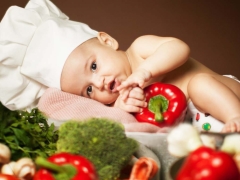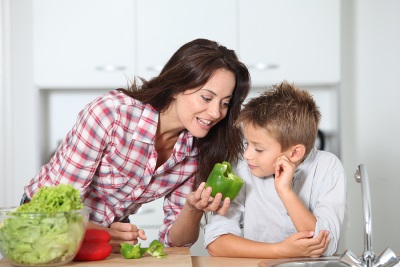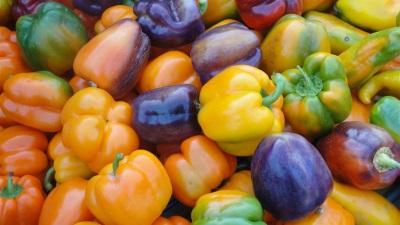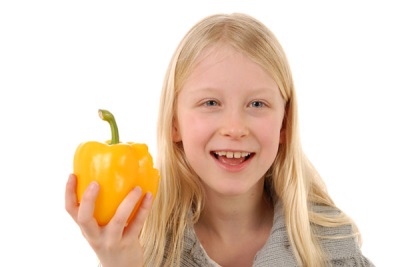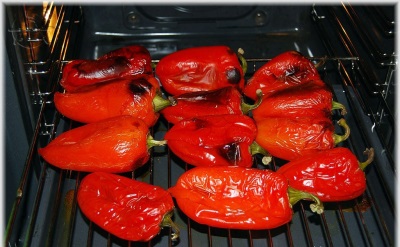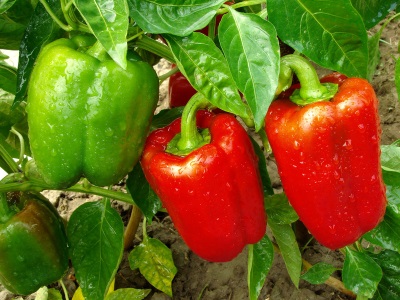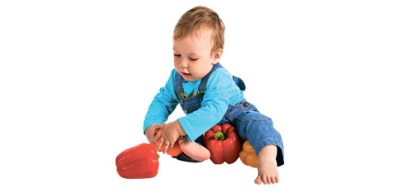At what age can you give pepper to children?
Sweet pepper is loved by many adults, therefore, when introducing vegetable complementary foods, each mother thinks about the opportunity to treat her baby with dishes. But is it possible to give such a product at the age of up to a year and when is it permissible to spice up a child’s food with black pepper?
The benefits of bell pepper
- Sweet pepper is rich in vitamins E, C, B2, PP, B6, beta-carotene, fatty acids, essential oils, proteins, and carbohydrates valuable for the children's body.
- Its use is useful for vision, condition of the mucous membranes, blood vessels and skin.
- His addition to baby food will improve the appetite of the crumbs and give energy.
- The presence of fiber in such a vegetable makes it useful for intestinal function and lowering blood cholesterol.
- Due to the large number of bioflavonoids, it protects the body from toxins and allergies.
You will learn more about the benefits by watching the “Live Healthy” program.
Minuses
- An allergic reaction is possible.
- This vegetable should not be given to children with diseases of the digestive system (especially with increased acidity), liver or kidneys.
- When too early introduction of fresh pepper in the diet may cause disruption of the stomach and intestines.
- Black ground pepper has an irritating effect on the mucous membranes of the digestive tract.
How many months can I give?
In the first year of life, giving the baby fresh pepper is not recommended. Boiled, mashed in mashed potatoes, it is permissible to add to vegetable dishes for a child from 10 months of age. To acquaint a child with such a vegetable in its raw form is advised only from 1.5 years.
Stuffed peppers are offered to children over the age of 1.5-2 years old, and canned or pickled should not be given to children at least until the age of three.
Ground black pepper in spices is not recommended for children under 5 years old.
In what form to give?
The best option for baby food is roasting in the oven. This treatment preserves the nutrients in the vegetable, but makes it less allergenic. Whole peppers are placed on a baking sheet, sprinkled with vegetable oil and kept in the oven until dark patches and bubbles appear on the peel.
After removing them, cover with a lid for a few minutes, then the skin is removed easier. After cleaning the cooled peppers, it can be crushed with a blender or cut into small pieces. It is often added to dishes of cereals, meat or pasta.
If the pepper is sweet, it will be an excellent component of vegetable salads, for example, with cabbage, tomatoes and cucumbers. Before adding to salads, it is well washed under running water, the tail is cut and cleaned of seeds, and then cut into small pieces. The dish can be refilled and sour cream, and any kind of vegetable oil.
One of the most popular ways to make Bulgarian pepper for a child is stuffing. Inside it you can put meat stuffing (boiled meat or minced meat), rice, cheese, various vegetables.Stuffed fruits are placed in a saucepan, add a little water and sour cream, cover with a lid and stew until the peppers soften and the filling is ready.
Tips for choosing
- Give preference to small fruits that have a rather thick flesh.
- Do not take for baby food fruits that have damage and rotted areas.
- It is best to give them to babies in the ripening season, because the greenhouse vegetable may include compounds harmful to the child’s body.
- Remember that green pepper is not as sweet as an orange, red and yellow vegetable, and its heat treatment often leads to bitterness.
What to do if you are allergic?
Allergic reactions are possible on the introduction into the diet of sweet pepper bright color. They are manifested by the appearance of rashes, red areas of skin, desquamation, itching, runny nose, swelling of the face and other symptoms.
If, after one or several tests, the child has signs of allergy, immediately cancel the vegetable and re-try to enter the children's menu after a few months. In the event of a severe allergic reaction, the baby should be shown to the doctor so that the specialist will appoint a suitable age-based treatment.
